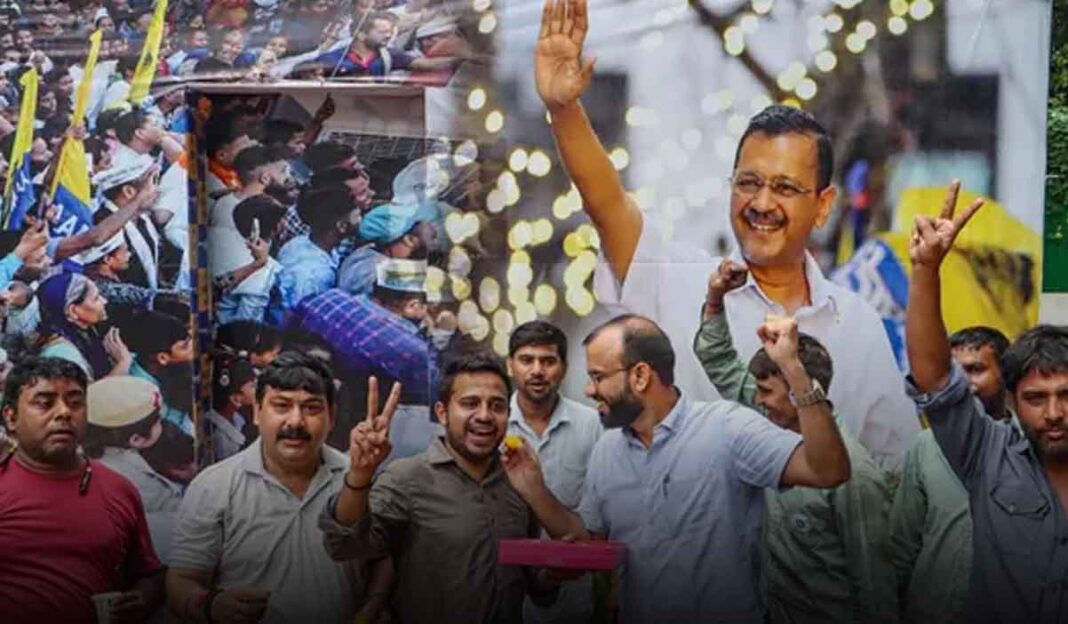The Supreme Court on Friday granted bail to Delhi Chief Minister Arvind Kejriwal in a corruption case filed by the CBI in connection with the excise policy controversy, emphasizing that prolonged detention would result in an undue denial of personal liberty
A bench comprising Justices Surya Kant and Ujjal Bhuyan approved Kejriwal’s release upon furnishing a bail bond worth Rs 10 lakh, along with two sureties of an equivalent amount.
Kejriwal, who was initially arrested by the ED on March 21 in relation to the excise policy case, had been granted interim bail on May 10 to campaign for the Lok Sabha elections. He has remained in custody since June 2 after voluntarily surrendering.
The court instructed Kejriwal to refrain from making any public statements regarding the merits of the case and noted that the conditions imposed in the ED case would similarly apply here. When granting bail in the ED case, the court had already ruled that Kejriwal could not enter his office, the Delhi Secretariat, or sign official documents unless strictly necessary and approved by the Lieutenant Governor.
The court highlighted that the trial’s conclusion was not imminent and dismissed concerns about potential evidence tampering. Justice Bhuyan, while agreeing with the bail decision, expressed skepticism about the timing of Kejriwal’s CBI arrest, noting that it appeared designed to thwart his release in the ED case. Bhuyan questioned why the CBI, which waited for 22 months, chose to arrest him just as he was being released in the ED case, dismissing the claim that Kejriwal’s evasive answers justified his detention. He further added that the CBI should demonstrate independence and dispel perceptions of being controlled.
Justice Bhuyan cautioned that it would be unjust to keep Kejriwal in custody, given that he had already been granted bail in the ED case on similar grounds. He also expressed concerns over restrictions in the ED case that prohibited Kejriwal from entering his office or signing official documents but refrained from commenting due to judicial discipline.
The Supreme Court reserved its decision on the case on September 5. Kejriwal had filed two separate petitions, challenging both his arrest and the denial of bail in the CBI’s corruption case. He was arrested by the CBI on June 26, and his petition challenged the Delhi High Court’s August 5 ruling, which upheld his detention.
On July 12, Kejriwal was granted interim bail in the related money laundering case. The court referred three key questions concerning the necessity of arrest under the Prevention of Money Laundering Act (PMLA) to a larger bench for a detailed review.
During the September 5 hearing, Kejriwal contested the CBI’s argument that he should have first sought bail from the trial court in the corruption case. The Additional Solicitor General, S V Raju, representing the CBI, argued that in the money laundering case, the apex court had similarly directed Kejriwal to approach the trial court first.
(With inputs from agency)
Share your news, articles, deals, columns, or press releases with us! Click the link to submit and join our platform today.


